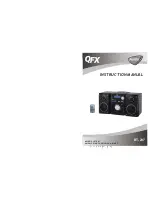
Chapter 1:Overview
18
Equalizer Installation and Administration Guide
Configuration Worksheet for Using Reserved IP Addresses
Equalizer supports placing servers on reserved, non-routable networks such as the class A
network 10.0.0.0 and the class C network 192.168.2.0. In environments where the
conservation of IP addresses is important, using reserved IP addresses can minimize the
number of “real” IP addresses needed. However, due to the additional overhead
introduced by enabling outbound NAT, using reserved internal networks should be
approached with caution. For more information about using reserved IP addresses, see
Appendix B.
1.
What is the “reserved” network to be used for the internal network?
Equalizer uses this set of address to balance the load across the servers. (Equalizer uses
the internal network to forward connections to the HTTP daemons running on the
servers.)
Example:
10.0.0.0 (netmask 255.0.0.0) or 192.168.2.0 (netmask 255.255.255.0)
2.
What is Equalizer's address on the internal network?
This is the address that the servers will use as their default gateway. This address
must be on the reserved network, as chosen in step one.
Example:
10.0.0.1 or 192.168.2.1
Summary of Contents for Equalizer
Page 2: ......
Page 4: ...iv Coyote Point Systems Inc ...
Page 32: ...Chapter 2 Installing Equalizer 22 Equalizer Installation and Administration Guide ...
Page 42: ...Chapter 3 Configuring Equalizer 32 Equalizer Installation and Administration Guide ...
Page 108: ...Chapter 7 Troubleshooting 98 Equalizer Installation and Administration Guide ...
Page 114: ...Appendix B Using Reserved IP Addresses 104 Equalizer Installation and Administration Guide ...
Page 118: ...Appendix C Regular Expression Format 108 Equalizer Installation and Administration Guide ...
Page 130: ...Appendix E Technical Specifications 120 Equalizer Installation and Administration Guide ...
Page 136: ...Appendix F License and Warranty 126 Equalizer Installation and Administration Guide ...
















































